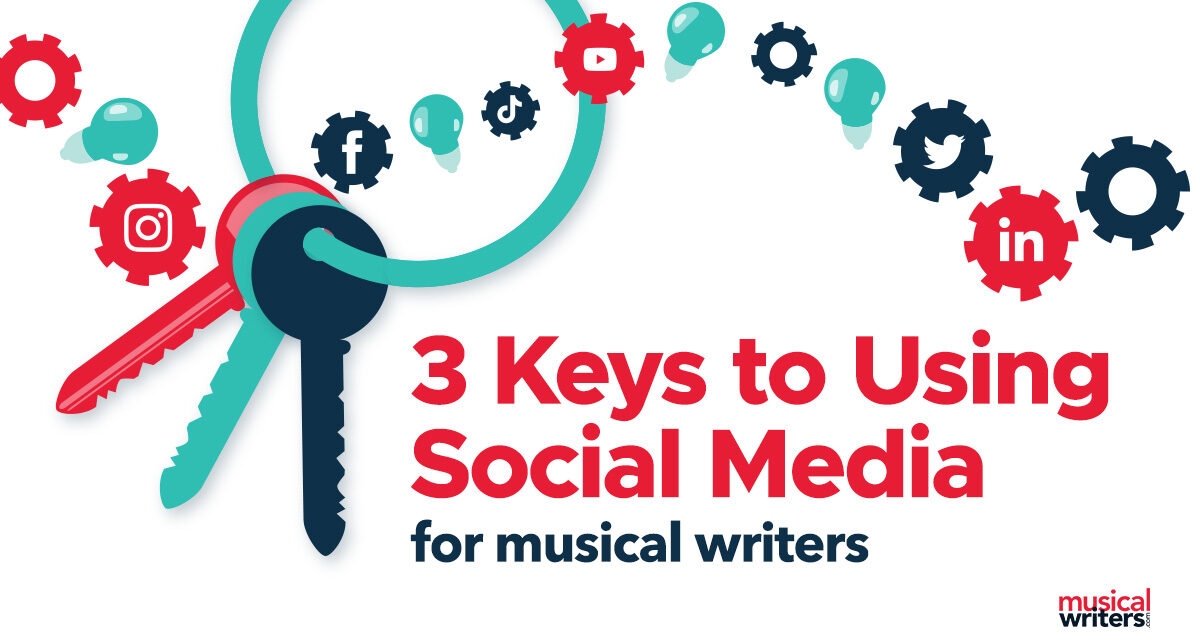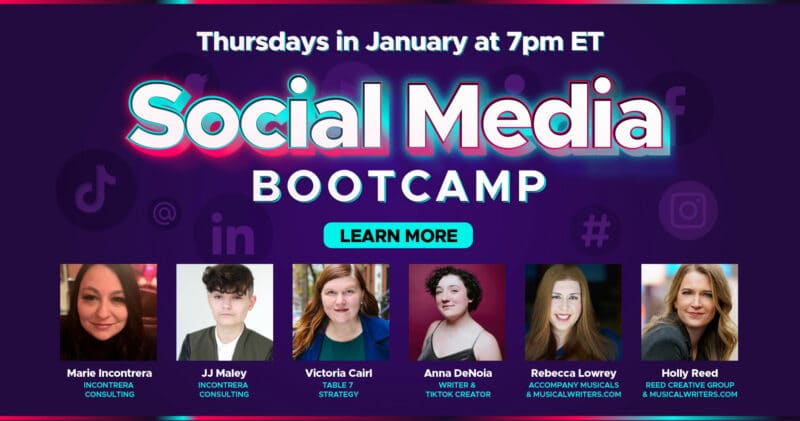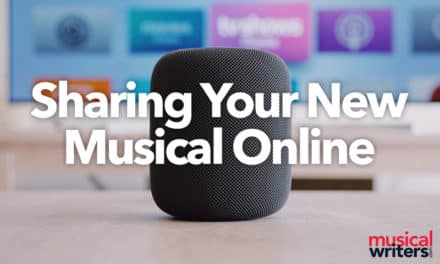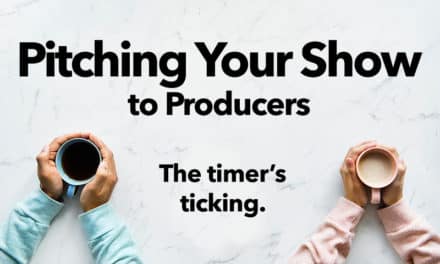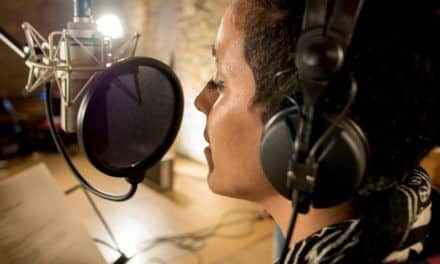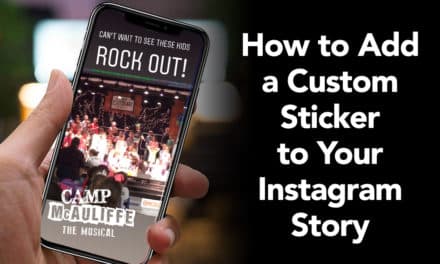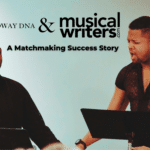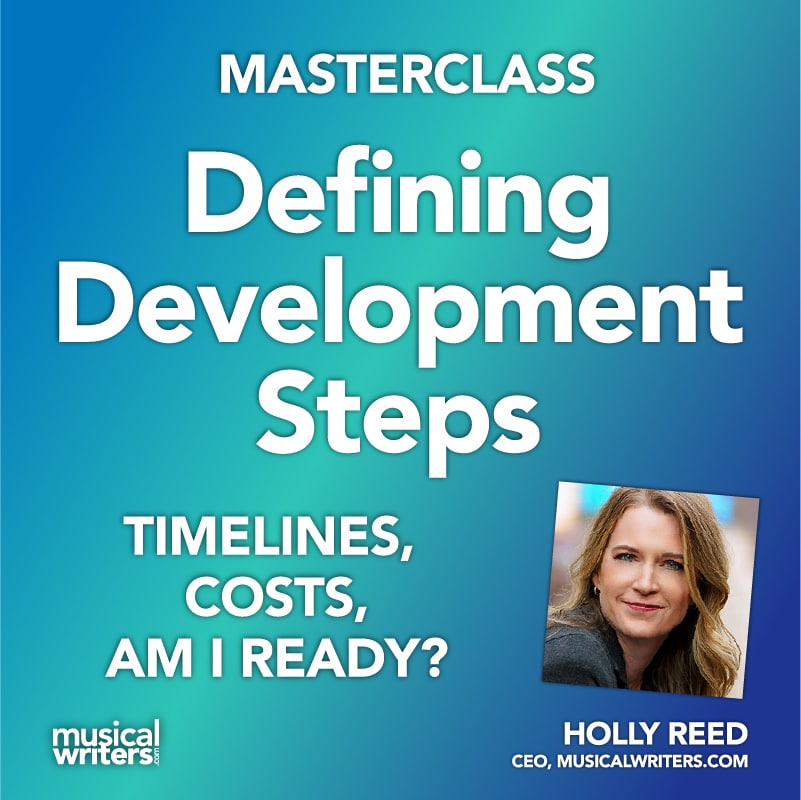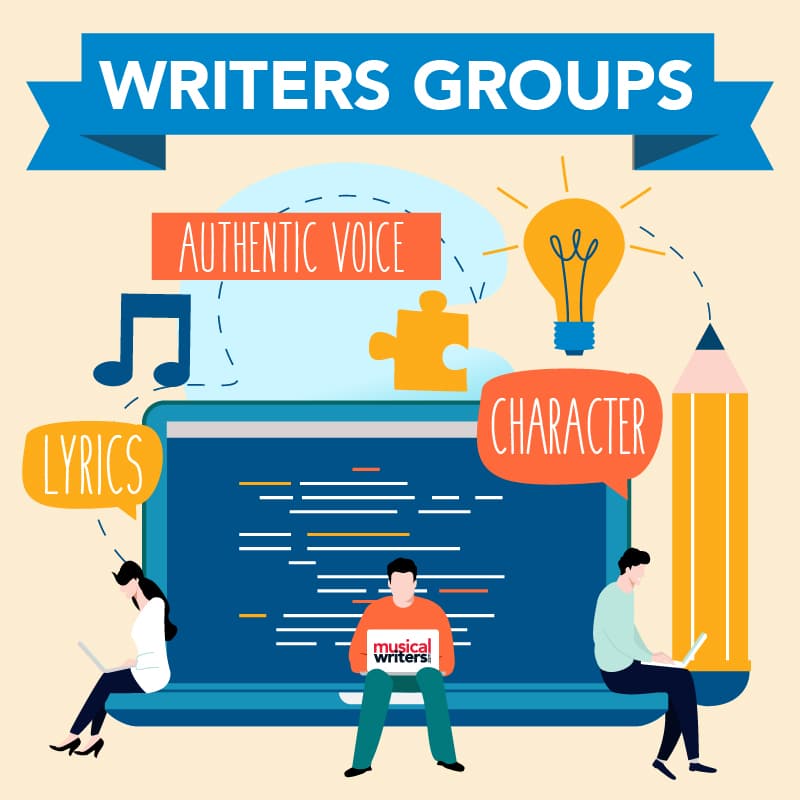Social Media. For many musical writers, the idea of using social media to promote their new musical often evokes a lot of mixed feelings.
We love scrolling through our social media feeds for a dopamine hit (usually when we’re supposed to be writing). But we get major “poster’s block,” when it’s time to actually create content about our current project. We don’t want to seem too salesy or spammy when talking about our show on social media, but we also don’t want to be shouting into a void with no one listening to us.
Sound familiar? We got you! Keep reading to learn three key concepts to help you leverage social media for your next musical project (without feeling like a used car salesman)!
In January, MusicalWriters hosted a Social Media Boot Camp. During this 4-week masterclass series, industry experts shared tips for writers who want to share their work on social media. The workshops covered everything from ways to get your music onto Spotify so it can be easily streamed and shared, to ideas for creative content that DOESN’T show the writer’s face on video, to tips for creating your own show logo and branding package. (Click HERE to learn more about this bootcamp and purchase access to the recordings.)
Below, we’ve distilled our experts’ advice on the use of social media for musical writers down to three recurring themes you can apply today. They are, “Don’t Just Consume, Connect!” “Don’t Just Sell, Serve!” and “Don’t Just Orate, Relate!”
(Plus, stick around to the end of the post. We’ll be sharing some of the best online tools and services for using social media as a musical writer that came up during the workshop.)
???? Key #1: Don’t just consume… connect!
It’s easy to fall into a pattern of only CONSUMING social media. But if you are a musical theatre writer with a show you want to put out into the world, you need to also put YOURSELF out there into the world. This means taking actions to CONNECT with others on social media. This connection should be not only with friends and family you already have; it should also industry professionals who could help promote your show later on.
Why might actively posting to social media help your musical’s success?
- Repeated exposure. The more often a producer, audience member, or performer is reminded that you are a musical writer with a stellar show to share, the more likely they will seriously consider buying a ticket, auditioning, or selecting your show to produce. In marketing, there is something called the “Rule of 7.” This rule states that someone has to “hear” from you at least 7 times before they will consider purchasing what you have to sell. Maybe that means 7 original posts from you, but it also might include tags, comments, or other people sharing your work
- Social proof. Whose recommendation are you more likely to trust: A writer saying how great their own show is, or someone who is not directly connected to a project saying how great that same show is? It’s human nature to be suspicious of people tooting their own horn, while trusting those who rave about others. So brag on, tag, and share others writers’ work as much as possible. By building up your network of connections on social media, you’ll increase the chance that other folks will share yours. And this means that people will be more likely to believe you when you say that your show is great, as well.
- Mastering the Platform. By interacting, commenting, and sharing other people’s work on a social media platform (like Facebook or TikTok), you will learn about the platform itself. You’ll also gain inspiration and learn to spot trends. What posts do you respond to? What doesn’t work? What great ideas from other creators can you tweak to make your own?
So, knowing that it is important to connect and not just consume, what about a musical writer who doesn’t yet feel comfortable creating new posts or putting their face on social media?
Here are some ways musical writers can connect with their audience, without creating new social media posts:
- Like and Comment. Engage, comment, and interact with others’ posts.
- Tagging. When you comment, tag any and all relevant accounts. (Pro tip: Make sure to tag @MusicalWriters in anything you post about your own shows or projects.)
- Share/Stitch. Share other creators’ work that you find particularly interesting, helpful, funny, or awesome. This might be things they have posted to social media, or it could be an article, video, or song you found on Spotify that you love.
To sum it up: “Be the cheerleader you would want other creators to be for you.” – Rebecca Lowrey
???? Key #2: Don’t just sell … serve!
Rather than just promoting your show constantly, try to use social media to provide a valuable service to your musical’s audience. Social media consumers tend to follow and interact with creators who are GIVING them something. This gift might be lists of cast albums they haven’t heard before, repertoire recommendations, or funny videos that surprise them and make them laugh. It can be anything, so long as you are not always ASKING for something without offering much in return.
In our recent Social Media Bootcamp, musical writer Anna DeNoia provided great examples of this. Rather than simply promoting her shows on TikTok, she created cast album recommendations and repertoire coaching videos. These videos provided a service, and garnered her a healthy social media following. With that “street cred,” she could then include her own shows, links, and upcoming events in her content, alongside the other artists she was promoting. This was a great way to serve AND sell, without feeling icky or overly-sales-y.
Now, this is not to say you shouldn’t ASK for things as well. (See the note above in theme #1 about having to mention things 7 times before someone actually listens to your cast album or subscribes to your email list.) Just make sure that your “ask” is often accompanied by helpful, amusing, or relatable content.
What are some examples of a “service” a musical writer might provide to their social media audience?
- Sharing “hidden gems.” What cast albums, scripts, or musical artists do you think that more people should know about? Share them in a TikTok video or carousel on Instagram. Or create a YouTube playlist and share it on Instagram or Twitter. (Make sure to include your own songs in the mix, too!)
- Audition Repertoire. Musical theatre performers are always looking for unique songs to add to their audition books. Can you share book curation tips with them, arrange audition cuts, or provide some other service to help performers with their vocal auditions?
- From the Archives. Could you create some sort of “on this day” series that highlights forgotten musicals, or great songs that were cut from musicals? Then throw in your own trunk songs as well!
- Give Them What They Want. Think about who you are trying to reach with a post, and tailor your content accordingly. For example, if you’re trying to reach an audience that LOVES new musicals, use verbiage like, “tag 3 friends who might want to be the first to hear about our upcoming productions.”
???? Key #3: Don’t Just orate….. relate!
What kinds of posts do you think get the most interaction on social media overall?
According to Social Media for Musical Writers Boot Camp expert Victoria Cairl, it’s these:
- Starting a new job
- Getting a new place to live
- The Death of a Pet
What do these experiences have in common? They are universal – everyone has experienced them at some point. And when people see posts that they relate to, they are more likely to comment, like, or share the post.
Why is interaction with a post so important? Most social media platforms use algorithms to decide what content to show to which people when. A post that has a lot of comments, likes, or shares tells the algorithm that this is content creator connects with a lot of people. This will nudge the algorithm to then share your content with even more people, expanding your reach, and increasing the chance you go viral.
It’s true that you might not be able to tie in your current project with one of those 3 universally-algorithm-friendly topics. However, take care that what you post about your show is relatable to your target audience. Try telling stories about your show (people love to get a glimpse behind the scenes of a project). Or maybe give some background information about why the show is important to you.
Don’t be afraid to share your bumps in the road as well. Everyone has experienced roadblocks on their way to a goal. So sharing those roadblocks is another way that your audience can relate to you.
How might a musical writer share more relatable content on social media?
- Include outtakes. Leave a camera rolling while you rehearse or collaborate. Then cut outtakes from that footage to post to social media.
- Use trending sounds. On TikTok, sounds often trend because they are something lots of people can relate to. You can use that to your advantage when coming up with ideas for your own content.
- Think about your “Why.” There is a great Ted Talk by Simon Sinek that talks how most people lead by sharing the “what” first; then the “how;” and then the “why.” But if you reverse that order, and talk about the “WHY” first, people will be more engaged in what you’re saying. So when you’re coming up with social media ideas, make sure you’re including the “why” and the “how” and not just sharing the “what.” (AKA, “I have a show, and here are the dates, and you should come.”)
Now that you’ve learned these three keys to using social media for musical writers, it’s time to dive in and start posting. Don’t worry about getting it “perfect. In fact, in today’s social media trends, it’s often the more raw and imperfect takes that go viral! (And make sure to tag @MusicalWriters so we can cheer you on!)
Our Favorite Social Media Tools and Resources
Here are some tools and resources that were mentioned during the bootcamp. Got any favorites to add to this list? Share them in the comments below!
- Canva (for creating artwork, logos, videos, and more – they also have a ton of awesome templates!)
- CapCut (for creating and editing TikTok style videos, it’s available both as a mobile app and a web-based tool for desktops and laptops)
- The Musical Writers Planner (for worksheets and resources for creating your own show website)
- Wix and Squarespace (for webpage design)
- SoundCloud, for uploading audio files so they can be shared on social media
- TuneCore, for publishing audio recordings onto streaming services like Spotify and Apple Music
- Table 7 Strategy (for social media marketing consultations)
- Incontrera Consulting (creates social media for commercial musicals)
- Reed Creative Group (for graphic design and key art)
Got more questions about using Social Media as a Musical Writer?
Check make sure to check out the replay of our Social Media Bootcamp by clicking the image below!

